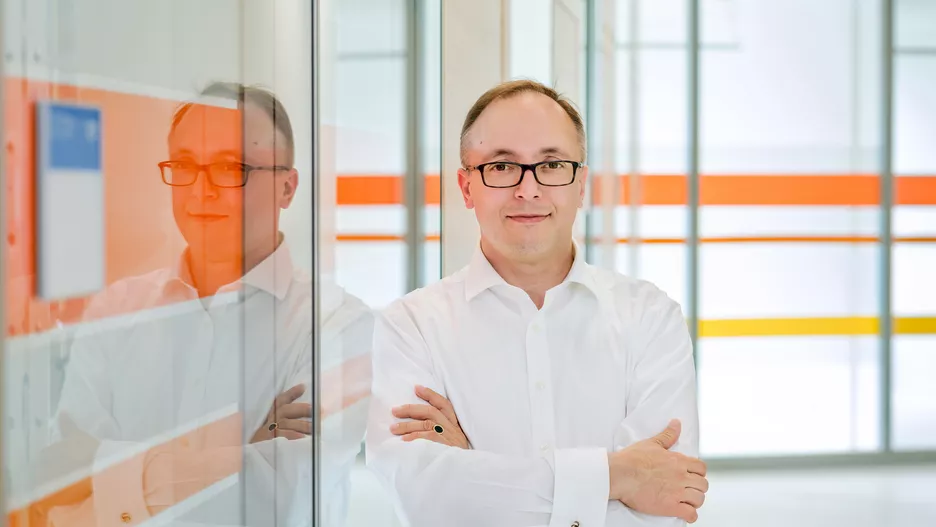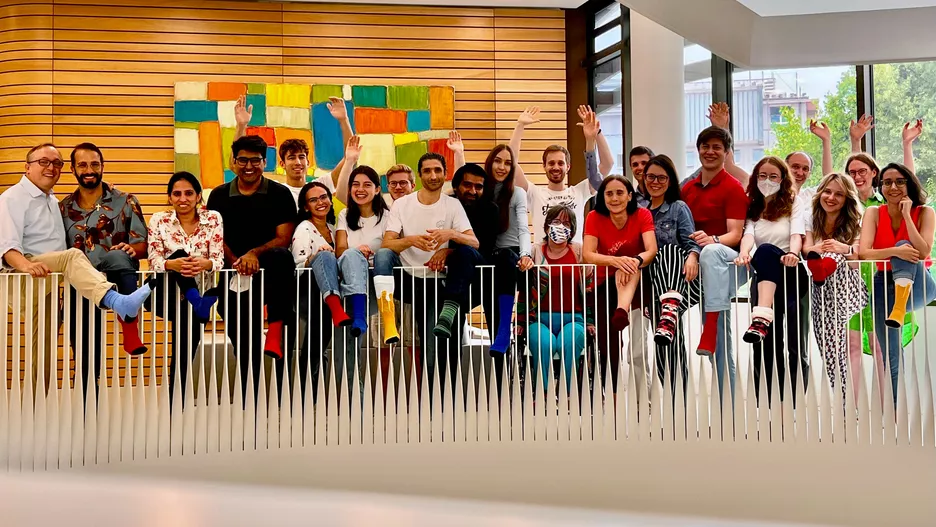This content is only available in English
Oliver Hayden - Biomedical Electronics

Research Focus
Integration, simplicity and actionability are key requirements for diagnostics in the clinical routine as well as for decentralized healthcare applications. Based on these principles the Chair is developing platform technologies including workflow solutions for in vitro and in vivo diagnostics. To support the mission of TranslaTUM we use our platforms to diagnose non-logistically stable but clinically-relevant biomarkers, such as exosomes or cell-cell interactions to support intervention decisions of acting physician or the work of pathologists. With apply microfluidics, acoustic sample preparation, and various opto-electronic read-out principles to develop technology to a readiness-level, which allows us to perform clinical diagnostic studies. Based on the idea of co-creational development with the “customer” we integrate our clinical partner and other stakeholder, such as data scientist, for workflow developments with high clinical acceptance and impact. Our solution-driven research strategy is related to the Chair’s past experience in industrial research and the challenges for successful technology transfer in a highly regulated market. Furthermore, as we work predominately in the field of sensing, we do not depend on singular technologies but seize the opportunity to identify economical and scalable technologies to address a clinical unmet need. With academic and industrial partnering as well as seizing the unique location of TranslaTUM on the campus of MRI, our future vision is to develop a network of expertise to develop novel value chains, which currently do not exist at TUM and allow a fast translation of results. The activities of the Chair are, therefore, also embedded in entrepreneurial activities of TUM’s Excellence Initiative, where we support the integration of TUM’s engineering at the site. The main methods the Chair is currently developing is around point-of-care compatible flow cytometry-related tools based on label- and sample preparation-free image analysis and magnetic sensing in undiluted whole blood. These methods will allow us to cover areas, such as next generation hematology analyzer or multiplexed analysis of different biomarker classes using a single platform. To develop novel workflows we are investigating sample-preparation methods, such as acoustic tweezer, to manipulate cells with digital precision and explore opportunities of open microfluidics for novel diagnostic functionalities.

Oliver Hayden studied biochemistry at the University of Vienna, Austria, where he finished his doctorate in 1999. After his postdoc at Harvard University, USA, and his completion of the venia docendi for Analytical Chemistry at the University of Vienna, he left academia to pursue his interests in industrial research. He joined IBM Research Laboratory Zürich, Switzerland, to work on post-CMOS technologies and moved to Siemens Erlangen, Germany, where he worked on various medical technologies, such as organic electronics for medical imaging and in-vitro diagnostics. In 2017 he returned to academia and was appointed as head of the Heinz-Nixdorf-Chair of Biomedical Electronics. From 2019 until 2021 he served as TranslaTUM Director. Currently, he supports the TUM Venture Healthcare entrepreneurial activities as Academic Director.
- European Inventor Award (2017)
- AMA Innovation Award (2016)
- Siemens NTF Award for Medical Imaging Patents (2013)
- EUREKA Lillehammer Award (2006)
- Young Investigator Award of the Society of Austrian Chemists (2002)
Hayden, O., Nielsch, K. (2011) Molecular-and Nano-Tubes. Springer Verlag NewYork. ISBN: 978-1-4419-9443-1
Ugele, M., Weniger, M., Stanzel, M., Bassler, M., Krause, S.W., Friedrich, O., Hayden, O., Richter, L. (2018) Label-Free High-Throughput Leukemia Detection by Holographic Microscopy. Adv Sci (Weinh). eCollection,5(12):1800761.
Reisbeck, M., Helou, M.J. Richter, L., Kappes, B., Friedrich, O., Hayden O. (2016) Magnetic fingerprints of rolling cells for quantitative flow cytometry in whole blood. Sci. Rep. 6, 32838.
Helou, M., Reisbeck, M., Tedde, S.F., Richter, L., Bär, L., Bosch, J.J., Stauber, R.H., Hayden, O. (2012) Time-of-flight magnetic flow cytometry in whole blood with integrated sample preparation. Lab Chip 13, 1035-1038.
Rauch, T., Böberl, M., Tedde, S., Kovalenko, M.V. Hesser, G., Fürst, J., Lemmer, U., Hayden, O. (2009) Near-infrared imaging with quantum dot sensitized organic photodiodes. Nature Photonics 3, 332-336.
edde, S., Kern, J., Fürst, J., Lugli, P., Hayden, O. (2009) Fully Spray-Coated Organic Photodiodes. Nano Letters 9, 980-983.
Hayden, O., Agarwal, R., Lieber, C.M. (2006) Nanoscale avalanche photodiodes for highly-sensitive and spatially-resolved photon detection. Nature Materials 5, 352-356.
Hayden, O., Mann, K.-J., Krassnig, S., Dickert, F. L. (2006) Biomimetic AB0 Blood Group Typing. Angew. Chem. Int. Ed. 45, 2626-2629.
Prof. Dr. Oliver Hayden
Technical University of Munich
School of Computation, Information and Technology
Heinz Nixdorf Chair of Biomedical Electronics
E-Mail
Team assistance:
Ingrid Franz
Phone: +49 89 4140 9032
E-Mail
Teaching/Research:
Dr. Martin Brischwein
Academic Senior Counselor
Phone: +49 89 4140 9035
E-Mail